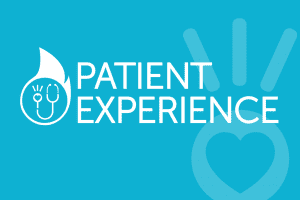East Anglia’s Children’s Hospices in Norfolk, U.K., has recently opened up its new facilities after renovations. To celebrate this opening, Kate Middleton, the Duchess of Cambridge, visited and spoke with a few of the families. Two of these families have opened up about their experiences with the Duchess. She met with Naomi Wright and her son Rupert, who has Hunter syndrome; she also talked to Sarah Fletcher and her son Toby, who has dystonic cerebral palsy. They have both said that they appreciate the time and care that Kate Middleton puts into her visits.
About Hunter Syndrome
Hunter syndrome, also known as mucopolysaccharidosis II (MPS II), is an extremely rare, genetic disorder caused by a lack of the enzyme iduronate 2-sulfatase. This enzyme is responsible for breaking down complex molecules, and without it these molecules build up and damage the body. This damage gets progressively worse as time passes, and it eventually causes permanent damage that affects appearance, mental development, organ function, and physical abilities. This disorder is inherited through a chromosome from the mother and is far more common in males than females. Due to the buildup of harmful molecules, symptoms do not begin to present until age two to four. They can be mild to severe depending on the person who has it. Symptoms include an enlarged head, thicker lips, a broad nose with flared nostrils, a protruding tongue, a deep or hoarse voice, abnormalities in the skeletal system, an distended abdomen due to enlarged internal organs, chronic diarrhea, white skin growths, joint stiffness, aggressive behavior, stunted growth, and delayed development. Along with these symptoms, Hunter syndrome can bring other complications depending on its severity. Respiratory, cardiac, brain, nervous system, skeletal, and connective tissue complications are all possible when one has this syndrome. There are currently no cures for this disorder, and treatment is symptomatic.
About Dystonic Cerebral Palsy
Dystonic cerebral palsy is part of the larger group of cerebral palsy disorders. Cerebral palsy affects movement and posture due to non-progressive damage to the brain. About one of every six cases of cerebral palsy is dystonic cerebral palsy, which is characterized by muscle spasms and unwanted movements. These movements are results of incorrect signals from the brain. It is caused by damage to the basal ganglia, the part of the brain that deals with muscle movement. It is often caused by issues during pregnancies, birth, or even infancy that cause brain damage. These incidents can include oxygen loss during delivery, premature birth, issues with the placenta, low birth weight, or problems during pregnancy. Brain damage that occurs in the weeks after birth can also lead to cerebral palsy. It is important to remember that all of these circumstances do not always result in cerebral palsy, but they are risk factors. In terms of symptoms, they are highly personalized to each patient. The muscle spasms can manifest as twisting, repetitive movements, abnormal posture, chorea, athetosis, or choreoathetosis. People with this condition may have trouble controlling their facial movements, which can result in issues with eating, drinking, saliva control, facial expressions, and speech. There is no cure for dystonic cerebral palsy, but there are treatments and therapies that are available. Medications can help to manage the spasms and pain, and occupational, physical, and speech therapy can help to manage eating, drinking, speech, and movement.
Kate Middleton’s Visit
Kate Middleton has been active in her work with East Anglia’s Children Hospice for eight years. After a €10 million fundraising campaign, she attended the opening of EACH’s new facilities. These facilities included a hydrotherapy pool, sensory room, and music studio for the children. The Duchess visited with various families and even makes visits to the homes of some of the children. Naomi Wright, whose son Rupert has Hunter syndrome, spoke of the visit, saying that “she’s a very special lady.” Another mother, Sarah Fletcher, whose son Toby has dystonic cerebral palsy, spoke of the importance of EACH. Because her son requires constant monitoring and medication, she often does not get a full night of sleep or time for herself. East Anglia’s Children Hospice allows for her to rest and spend time with her other children. Without EACH, it would be very difficult for her to get these things that she needs.
Find the original article here.






